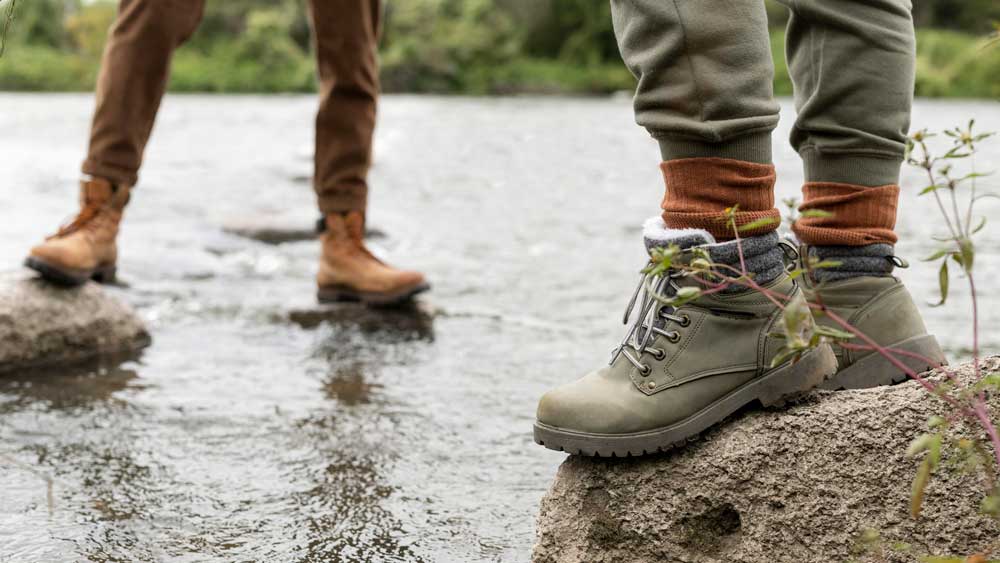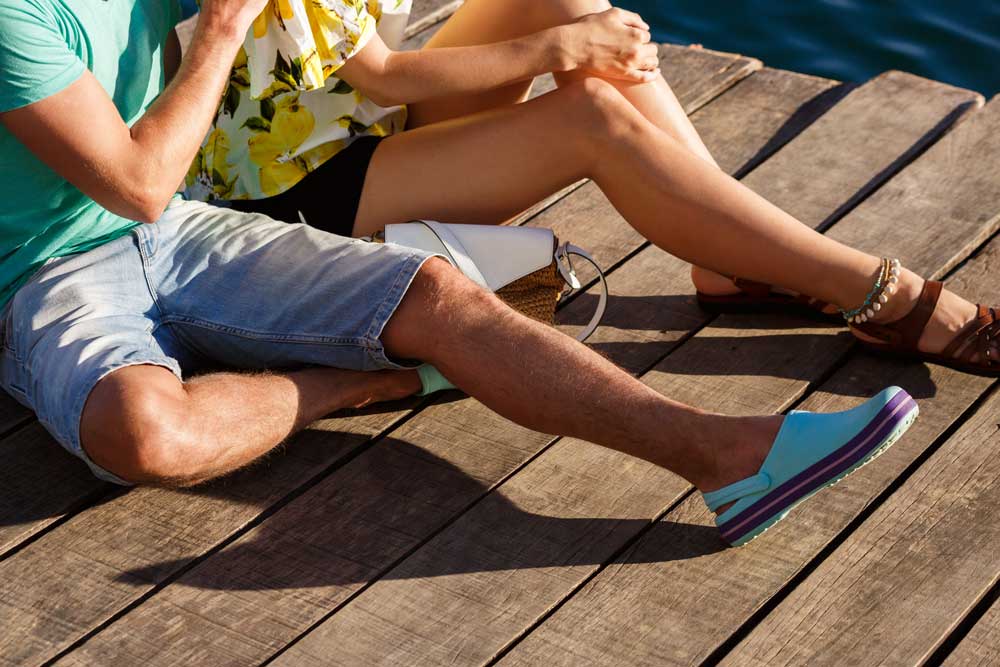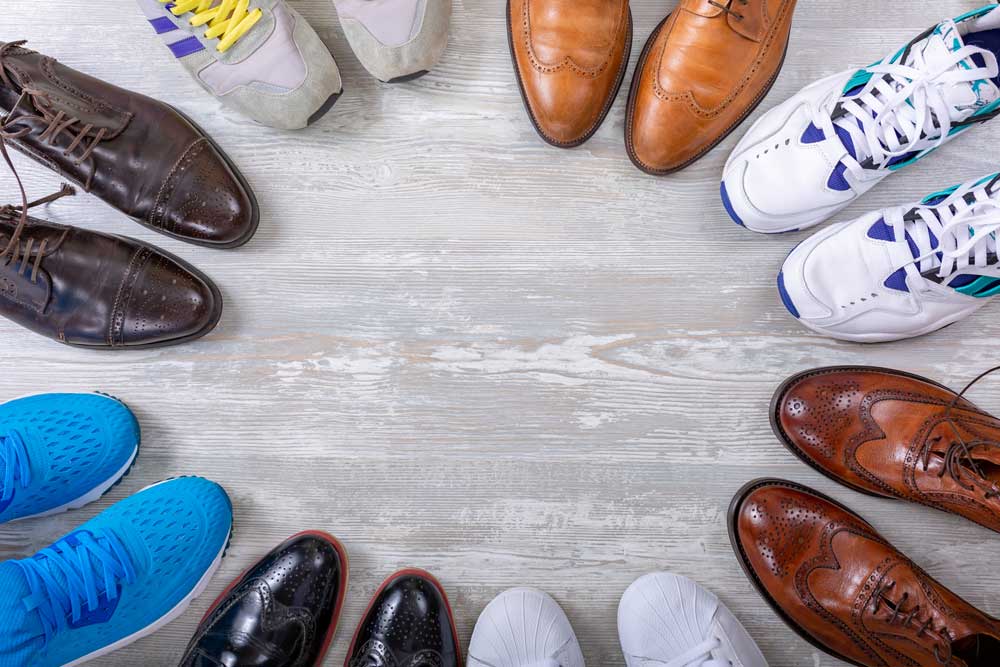Wearing the right shoes for different activities is essential for comfort, performance, and injury prevention. Whether you’re hitting the gym, going for a run, or spending a long day at work, the right footwear can make all the difference. Choosing the wrong shoes can lead to foot pain, blisters, and long-term issues like plantar fasciitis or ankle instability. In this guide, we will break down the best footwear choices for various activities to help you protect your feet and stay comfortable throughout the day.
Everyday Footwear: Prioritizing Comfort and Support
If you spend long hours on your feet at work or during daily activities, your shoes should provide proper arch support, cushioning, and a secure fit. The best choices for everyday wear include:
- Walking shoes: Designed with shock absorption and a supportive midsole to reduce foot fatigue.
- Orthopedic shoes: Ideal for individuals with foot conditions such as bunions or flat feet, offering extra arch support and cushioning.
- Slip-resistant shoes: Recommended for those working in environments with slick surfaces, such as healthcare professionals or restaurant workers.
What to Look For in Everyday Shoes
- Proper arch support to prevent foot strain
- A wide toe box to accommodate natural foot movement
- Breathable materials to keep feet cool and dry
Running and Athletic Shoes: Enhancing Performance and Reducing Injury Risk
The right running or training shoes can help prevent injuries like shin splints, Achilles tendonitis, and stress fractures. Different sports and workouts require specific footwear features:
- Running shoes: Designed with shock absorption, flexibility, and a lightweight structure to enhance speed and reduce impact on joints.
- Cross-training shoes: Offer lateral support and a stable sole, making them perfect for gym workouts, aerobics, or high-intensity interval training (HIIT).
- Basketball shoes: Feature ankle support and thick cushioning to absorb impact from jumps and quick lateral movements.
Key Features to Consider for Athletic Shoes
- Cushioning to absorb shock and reduce stress on joints
- Good traction for stability on different surfaces
- Proper fit to prevent blisters and discomfort
Hiking and Outdoor Activities: Stability and Durability
Hiking and outdoor activities demand shoes that provide grip, support, and protection against rough terrain. Depending on the intensity of your activity, consider:
- Hiking boots: Provide ankle support and durable soles for rough trails and long treks.
- Trail running shoes: Lighter than hiking boots but offer enhanced traction and durability for off-road running.
- Waterproof shoes: Essential for wet environments or rainy conditions to keep feet dry and prevent blisters.
What to Look For in Outdoor Footwear
- Non-slip soles in maximum traction
- Waterproof or moisture-wicking materials
- Ankle support to reduce the risk of sprains

Footwear for Work and Safety: Preventing Fatigue and Injury
If your job requires standing for extended periods or working in hazardous conditions, choosing the right footwear is crucial for preventing foot pain and workplace injuries. Here are some common work footwear options:
- Steel-toe boots: Required for construction and industrial jobs to protect against heavy objects.
- Slip-resistant shoes: Necessary for healthcare, food service, and hospitality workers to prevent slips and falls.
- Comfort-focused dress shoes: Essential for professionals who need to maintain a polished appearance without sacrificing support.
Key Considerations for Work Shoes
- Shock-absorbing insoles to reduce foot fatigue
- Proper fit to avoid pinching or blisters
- Non-slip soles for added safety
Sandals and Casual Shoes: Keeping Feet Comfortable in Warm Weather
While sandals and casual footwear offer breathability, they should still provide adequate support to avoid foot strain. Here’s what to consider:
- Arch-support sandals: Designed with built-in support to reduce pressure on the feet.
- Closed-toe sandals: Provide protection while maintaining ventilation, making them a great option for walking.
- Flip-flops (minimal wear): Best for short durations since they offer little to no arch support.
What to Avoid in Casual Footwear
- Completely flat soles that offer no support
- Tight-fitting sandals that cause blisters
- Poor-quality materials that can lead to foot odor

Special Considerations: Choosing Footwear for Foot Conditions
Individuals with foot conditions such as plantar fasciitis, bunions, or diabetic foot concerns need specialized footwear to prevent pain and complications. Some ideal choices include:
- Plantar fasciitis shoes: Feature strong arch support and cushioned insoles to reduce heel pain.
- Diabetic shoes: Designed with extra depth and seamless interiors to prevent irritation and ulcers.
- Bunion-friendly shoes: Offer a wide toe box to reduce pressure on the bunion area.
How to Choose Shoes for Foot Conditions
- Seek shoes with a firm midsole to provide arch support
- Choose a deep and wide toe box for added comfort
- Consider custom orthotics for extra support
FAQs
How often should I replace my shoes?
Most athletic shoes should be replaced every 300-500 miles, while everyday shoes may last 6-12 months depending on wear and tear.
Can the wrong footwear cause foot pain?
Yes. Wearing improper footwear can lead to conditions like plantar fasciitis, bunions, and even back pain due to poor posture.
What is the best way to break in new shoes?
Wear them for short periods, gradually increasing wear time. Use socks to prevent blisters and consider stretching tight areas with a shoe stretcher.
Should I buy shoes in the morning or evening?
It is best to buy shoes in the afternoon or evening when your feet are slightly swollen from daily activities, ensuring a more accurate fit.
Contact Us Today
Choosing the right footwear for your activities is essential for maintaining foot health, preventing pain, and enhancing performance. Whether you need everyday shoes, athletic footwear, or specialized options for foot conditions, the right choice can make a significant difference in your comfort and mobility.
At Central Arkansas Foot and Ankle Specialists, we understand the importance of foot health and proper footwear. If you’re experiencing foot pain or need expert recommendations, our team in Conway, Arkansas, is here to help. Call (501) 483-0900 to schedule an appointment and take the next step toward healthier, pain-free feet!

